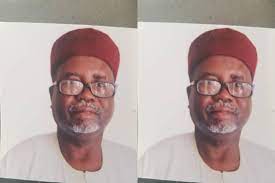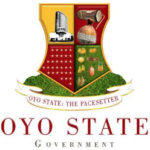We lost Professor A. D. Yahaya on Saturday. For me, he was a teacher, mentor, guide and inspiration. He was my Head of Department and project supervisor in my final year in Ahmadu Bello University. I had proposed to study the political consciousness of the peasantry in Kano and he was so excited by the choice that he called me to his office, commended me on the good subject I had chosen and proposed that he would supervise the project himself. That was in 1976 and since then, we had maintained close relations in the decades that followed. He was a real gentleman, polite, soft-spoken and always following up on the progress of his former students
After my NYSC in 1978, the entire set of graduates from Kano were offered employment by the Kano State Government, they already had all our information from the Scholarship Board. I guess that was a different epoch in Nigeria when graduates had the problem of deciding which job offer to accept. I was not keen on working for the state government as I wanted to be a practicing journalist. I walked to NTA to see if they could take me on and I was asked to resume the following day as producer and presenter, current affairs while formal processes of interview and the paper work would be done later. I therefore started my career as a journalist. I did not know that Professor Yahaya had already offered me a job as graduate assistant at Ahmadu Bello University. He contacted me arguing that I would be more useful in the academy as the media world has too much restraint on intellectual expression, I accepted, resigned from NTA and I moved to Zaria.
Our generation of young academics – graduates of 1976-1979, met exceptional circumstances. Following the assassination of Murtala Mohammed on 13th February 1976, the following day, many expatriate staff held a party and danced through the night. The conclusion was obvious, they were celebrating the assassination.
Students were furious when they learnt about it, traced the party-goers and gave them a good beating. Years later, some people argued that they were having a Valentine party, which had the students known would have made them even more angry as it was a time for mourning not love. The end result was that most of the foreign staff left the university and our generation of graduate assistants and assistant lecturers started teaching immediately, before even concluding our Masters degrees.
The position of Professor Yahaya and some of his Nigerian colleagues was that the university should not seek to recruit new foreign staff but should follow the path of recruitment and development of young Nigerian academics. Within our Department of Political Science, Professor Yahaya encouraged us to take up the heavy burden as a rapid results approach to intellectual development. He trusted us, guided us, gave us great responsibility and declared that we were previously his students that had transited into the colleague status. He gave us the confidence and protection to say what we felt at departmental and faculty meetings and by so doing greatly accelerated our intellectual development.
A. D. Yahaya was a radical intellectual and his brand of politics can be situated in paragraph seven of the Sawaba Declaration: “The Northern Elements Progressive Union of Northern Nigeria, therefore, being the only political party of the talakawa, enters the field of political action determined to reduce to nonentity any party of hypocrites and traitors to our mother country, and calls upon all the sons and daughters of Northern Nigeria to muster under its banner to the end, that a speedy termination may be wrought to this vicious system of administration which deprives them of the fruits of their labour, and that POVERTY may give place to COMFORT, PRIVILEGE to EQUALITY, and political, economic and social SLAVERY to FREEDOM.”
His doctoral thesis which was later published by Ahmadu Bello University Press in 1980 was: A. D. Yahaya “The Native Authority System in Northern Nigeria”. The innocent looking title hid the deep commitment to radical commitment and action of the author. He traced in detail the ways in which the Native Authority (NA) System worked closely with traditional rulers to oppress the talakawa, the masses, in Northern Nigeria. One of the consequences of their actions, he pointed out, was the stifling of the development of political forces in the North. The State was the NA which in turn was the expression of traditional authority – all of them arraigned against the people. This accounted for why nationalist movements developed very late in the North.
It was in this context that the Northern Element Progressive Union (NEPU) emerged in 1950 to contest the oppression and monopoly of power by the NA system. They had very strong ideological leaning expressed so eloquently by the Sawaba Declaration: “That the shocking state of social order as at present existing in Northern Nigeria is due to nothing but the Family Compact rule of the so-called Native Administration in their present autocratic form…. There is today in our society an antagonism of interest, manifesting itself as a class struggle between the members of the vicious circle of Native Administration on the one hand and the ordinary talakawa on the other.”
NEPU had the belief and boldness to articulate its ideological preferences to the people in opposition to what the powers that be wanted. On page 166 of the book for example, Professor Yahaya provided some of the content of this radicalism, interestingly enough, citing the police report on NEPU surveillance. In a public lecture at Moonshine Hotel, Zaria on 16th October 1952, Aminu Kano told the talakawa that their elected representatives were fake because they rigged the elections, that people in authority are by definition servants and not masters of the people so they can disobey directives from the authority, especially directives that force them to work without pay and so on, which the police of course considered to be sedition.
The politics of that epoch was much clearer than what we have today. The political parties at that time were clear about what they were. The Northern Peoples’ Congress (NPC) was the party of the Northern aristocracy and it was structured around the system of Native Administration, which they controlled. It was conservative, it believed in maintaining stability and the power it controlled. It was the party of what Max Weber would call “eternal yesterday”. To ensure that yesterday’s men would control power tomorrow, it was ruthless in using repressive power of the State to deal with opposition.
NEPU on the other hand was not shy to define itself as a party for radical change that was engaged in class struggle to emancipate the oppressed masses, the talakawa. The leaders of NEPU were well versed in Islamic knowledge and used the knowledge to justify the struggle as being in conformity with the religion of the people.
Professor A. D. Yahaya was very happy about the victory of the Peoples’ Redemption Party in Kano and Kaduna states in 1979 and did not hesitate about serving as political adviser of the PRP Governor of Kano State to revive the struggle for the emancipation of the talakawa.
Rest in peace Prof. May God forgive his shortcomings, grant him Al-Janatul Firdausi and give his family, friends and former students the fortitude to bear the loss.

 Join Daily Trust WhatsApp Community For Quick Access To News and Happenings Around You.
Join Daily Trust WhatsApp Community For Quick Access To News and Happenings Around You.


